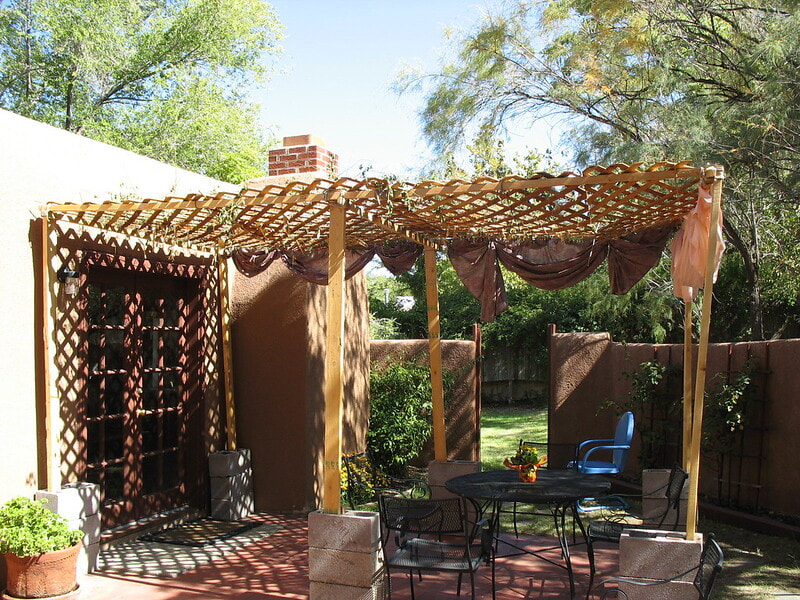|
The Feast of Tabernacles, which begins tonight, is a time of remembering God's faithfulness to the children of Israel while they were in the wilderness. Yet this celebration is also for remembering how the Lord brought them into the Promised Land. The sukkah (a temporary dwelling made of broken branches) represents their wilderness journey. However, fruit is present in the branches to represent what was to come in the Promised Land. We could look at this time as one that joins together the wilderness with the Promised Land. Rabbi Jonathan Cahn says that the celebration of the Feast of Tabernacles is a joining together of the wilderness with the Promised Land. We, as children of God, could say heaven and earth are being joined together. How appropriate that Jesus taught His disciples to pray, "Your Kingdom come, Your will be done, on earth as it is in heaven." (Matthew 6:10)
For God to have more intimacy with us (His greatest desire) there needs to be a connection between heaven and earth. That is one of the reasons that the Lord set up times and seasons for special meetings with Him. All of His feasts come to a culmination during the Feast of Tabernacles or Sukkot. The name of this feast should draw us back to the first time God spoke to Moses and instructed him and the Israelites to construct a tabernacle for Him where He would dwell in their midst. (Exodus 25:8) The Hebrew word "Shakan" means to dwell. The first time this word appears in Scripture is in Genesis 3:22-24. God had to bar Adam and Eve from the Garden of Eden after their sin, so He placed cherubim at the entrance. They were to dwell at the entrance to guard the way to the Tree of Life. In this case, the dwelling of the cherubim was an act of kindness. The desire of God to dwell with His people is shown in many places in the Bible. Exodus 29:45-46 says, "Then I will dwell among the Israelites and be their God. They will know I am the Lord their God, who brought them out of Egypt so that I might dwell among them..." God calls the place where He abides with His people the "dwelling for His Name." (Deuteronomy 12:11) The prophet Joel ends his book with a statement that tells us where God will dwell with His people on earth: "The Lord dwells in Zion!" (Joel 3:21) The tabernacle was the temporary structure where God dwelt with His people. Once Israel settled in the Promised Land, they build a permanent structure called the Temple. This edifice was built by Solomon, and God instructed Israel to walk in His statutes and keep His commandments so that He could live among them. He said, "And I will live (dwell) among the Israelites and will not abandon my people, Israel." (1 Kings 6:13) As explained by Psalm 74:7, the Lord's instructions were not followed. "They defiled the dwelling place of Your name." This did not stop the Lord's pursuit of His people. He is compelled to draw near to us. Look at Zechariah 8:3. "I will return to Zion and dwell in Jerusalem..." The prophets consistently declare that God will dwell among His people. Isaiah 7:14 explains the great lengths that God goes to for intimacy. "Therefore, the Lord Himself will give you a sign: The virgin will conceive and give birth to a son and will call Him Immanuel," meaning God with us. The gospel of John brings clarity to this: "The Word became flesh and dwelt among us..." The Feast of Tabernacles is our reminder of God's great desire to dwell with us. Jesus/Yeshua is the tabernacle of God among us. He desires to tabernacle with us. He encourages us to use this season as one to sit in His presence and dine from His table of delights. John 14:23 takes us back to what God said to His children in the wilderness. "...Anyone who loves me will obey my teaching. My Father will love them, and we will come to them and make our home (dwelling place) with them." Not only are we meant to dwell with the Lord, but we are a dwelling place for His Holy Spirit. Let us use this week called The Feast of Tabernacles to connect with the Lord by setting aside time to contemplate His goodness, listening for His words of affirmation, and celebrating that He is, indeed, God with us, "Immanuel." |
Joan E. MathiasCategories
All
Archives
July 2024
|

 RSS Feed
RSS Feed